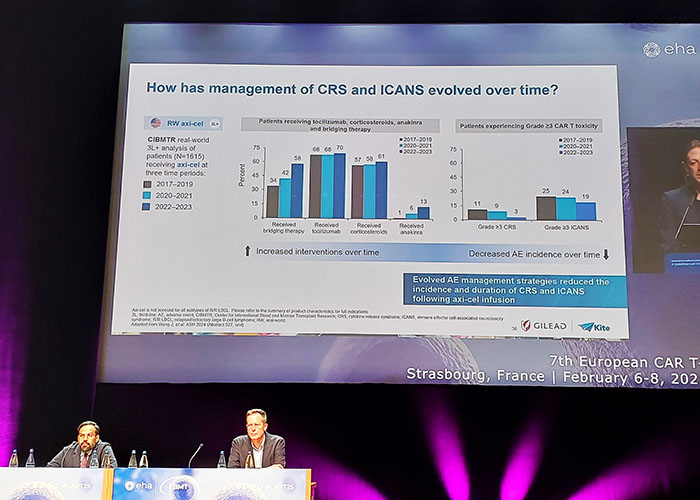
Immune effector cell-associated neurotoxicity syndrome (ICANS) is generally reversible in most patients. This condition, a side effect of certain cancer immunotherapies like CAR T-cell therapy, typically resolves with appropriate treatment and supportive care, leaving no permanent neurological deficits.
The reversibility of ICANS depends on timely recognition and intervention. Treatments may include corticosteroids to reduce inflammation, medications for seizures, or adjustments to the potency of the immunotherapy. In rare cases where symptoms are severe or refractory, more aggressive measures such as targeting the CAR T cells may be necessary. While fatalities and long-term complications are possible in extreme cases, most patients recover fully without lasting damage.
What is ICANS?
ICANS (Immune Effector Cell-Associated Neurotoxicity Syndrome) is a neurological complication that can develop after CAR T-cell therapy. It may appear within days of treatment and can cause a range of symptoms, such as confusion, memory loss, difficulty speaking or writing, tremors, drowsiness, and, in more severe cases, seizures or loss of consciousness. The exact symptoms and severity can vary from person to person.
Although ICANS can be frightening, especially when symptoms escalate quickly, it is typically a temporary condition. With close monitoring and medical support, including anti-inflammatory treatments like corticosteroids and anti-seizure medications when needed, most patients experience a full recovery.

Photo: European CAR-T conference 2025. Strasbourg, France.
Publication date: April 2025
Sources:
medicalnewstoday.com
pmc.ncbi.nlm.nih.gov
journals.lww.com
ascopubs.org
ashpublications.org
ncbi.nlm.nih.gov







